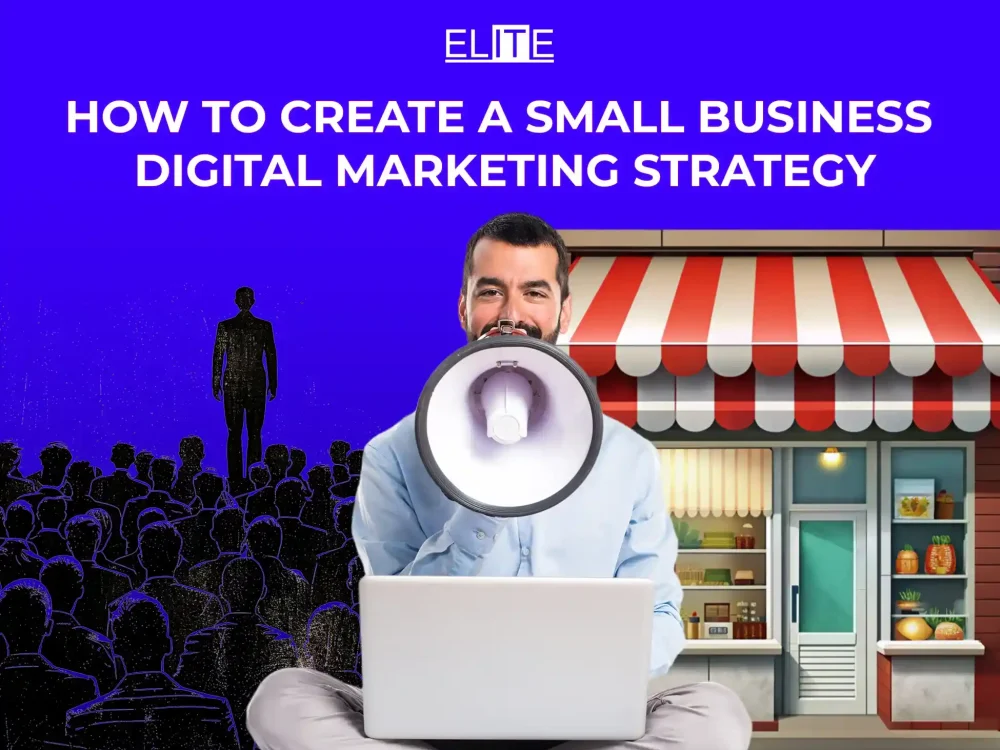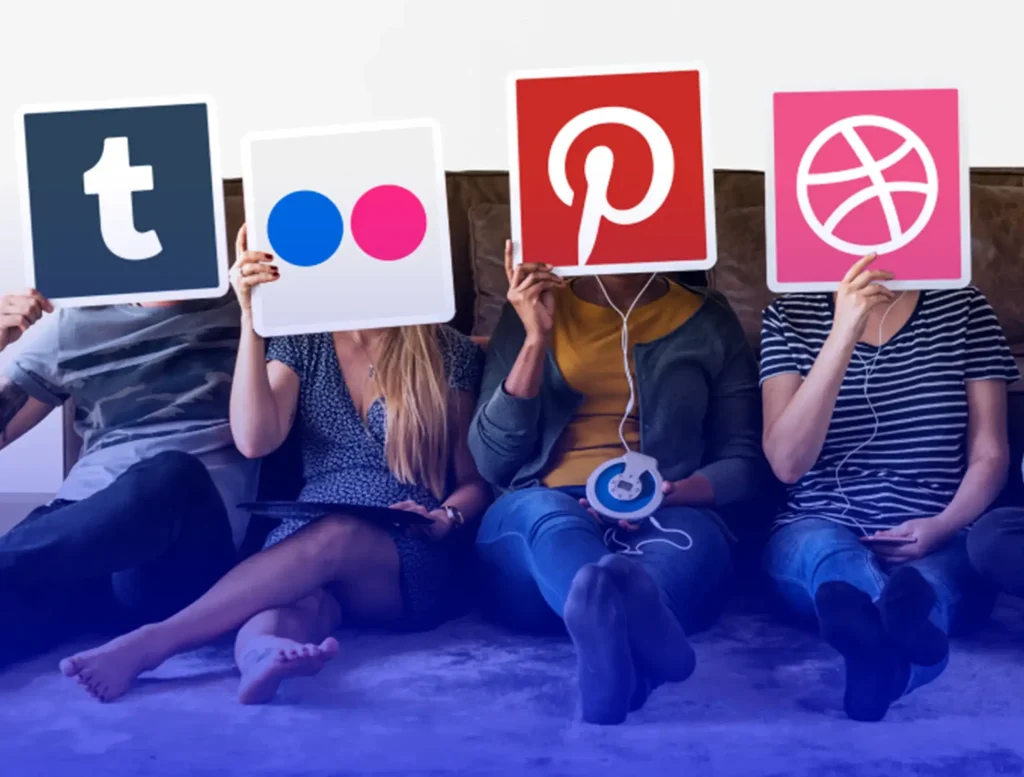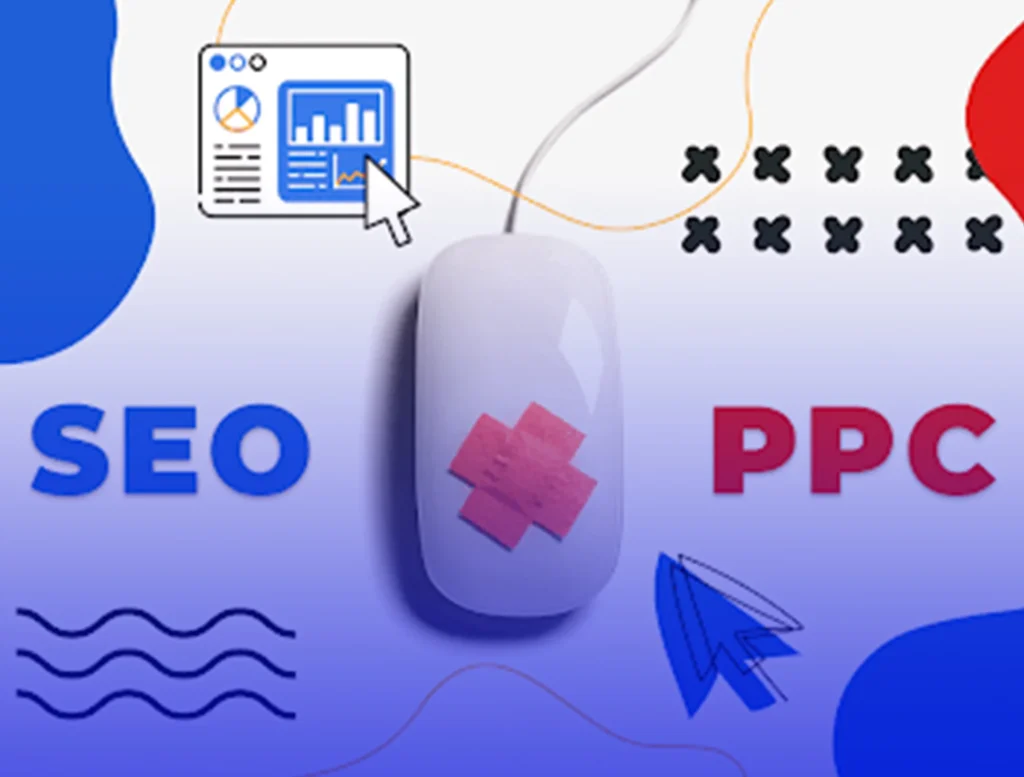How to Create a Small Business Digital Marketing Strategy: A Step by Step Guide [2024]

Remember when marketing was all about billboards, flyers, and those annoying cold calls? Yeah, thankfully, we’ve come a long way since then! In today’s world, it’s all about digital marketing. So, what exactly is digital marketing?
In simple terms, it’s how businesses promote themselves online, whether through social media, search engines, or email campaigns. Knowing how to create a small business digital marketing strategy is key to turning curious visitors into loyal customers. From choosing the right channels to targeting your ideal audience, a solid strategy is your best bet for long-term growth. Oh, and if you’re an IT service provider, don’t forget to utilise your digital presence! Just look at brands like Airbnb or Glossier—they’ve nailed digital marketing and built lasting relationships with their users.
But where do you start? Platforms like Facebook, Instagram, Google Ads, and email newsletters offer endless opportunities for small businesses. Whether you need help with social media ads or SEO, investing in digital marketing services is a no-brainer. Companies like Elite IT Team make it easy by offering customised solutions that fit your needs. In this blog, we’ll break down each step to help you build a strategy that attracts customers and keeps them coming back! Ready to dive in?
How to Create a Small Business Digital Marketing Strategy with Essential Steps:
Crafting a digital marketing strategy is crucial for any small business aiming to grow online. It helps you reach your target audience, build your brand, and generate sustainable customer relationships. If you’re wondering why digital marketing is important for small businesses, it’s because it offers affordable and measurable ways to promote your services and compete with larger companies. Let’s look into how to create a small business digital marketing strategy by exploring five essential steps that will set your business up for success.
Define Your Business Goals and Market:
Before we dive headfirst into the world of digital marketing for small businesses, let’s get one thing straight—what do you actually want to achieve? Are you looking to make your brand the next big thing, or are you laser-focused on boosting those sales numbers? Figuring this out is your first big step because, honestly, it’s going to shape your entire strategy.
Next, think about your audience—who are these people? What do they care about? Where do they hang out online (Instagram, TikTok, LinkedIn)? Oh, and what keeps them up at night? Once you’ve got a handle on that, you can start crafting campaigns that really speak to them and hit home. Aligning your goals with what your audience needs? Now that’s how you get results!
Understanding and Identifying Your Target Audience:
Alright, let’s talk about hitting the jackpot with your online marketing! To really nail it, you’ve got to get cosy with your target audience. This means diving into some good old market research—think of it as your digital treasure hunt. Who are these people? What makes them tick? And where do they hang out online? For example, if you’re running a sneaker shop, you might want to blast out ads featuring those ultra-cool kicks to the sporty teens. On the flip side, if you’re in the jewellery business, shiny and sophisticated pieces for young adults might be your sweet spot. Understanding your ideal target audience is crucial for tailoring your message effectively.
The key here is to keep your finger on the pulse—track how your audience engages with your content and tweak your strategy as needed. By staying in tune with their needs and interests, your digital marketing for startups will not only be spot-on but also super effective. So, let’s get out there and make those campaigns pop!
Establish a budget and Clear Targets:
When setting up your digital marketing plan, it’s important to allocate your budget according to your immediate needs and long-term goals. At the start, you might not be able to invest $100,000 in PPC campaigns, so consider focusing on cost-effective strategies like SEO and content marketing to build your online presence. By setting clear, achievable targets and sticking to a realistic budget, you can make the most of your resources and gradually scale up as your business grows. Balancing your spending with your marketing goals will help ensure a more sustainable and effective digital strategy.
Track and Test Performance of your Strategies:
Tracking the performance of your marketing strategies is essential for understanding what works and what doesn’t. By monitoring key metrics like website traffic, conversion rates, and engagement levels, you can gauge the effectiveness of your campaigns and make informed adjustments. This process helps you refine your marketing ideas for small businesses, ensuring you’re always on the right path to achieving your goals.
Use tools like Google Analytics to keep tabs on your performance. These tools provide valuable insights into how users interact with your site, which strategies are driving traffic, and where improvements can be made. Regularly reviewing these analytics allows you to stay agile and optimise your approach for the best results.
Digital Traffic Channels & How to Use Them in your Strategy:
In today’s digital world, utilising various traffic channels is crucial for business success. Social media platforms, for instance, offer exceptional opportunities to connect with a wide audience and boost brand visibility. By engaging with users through channels like Facebook, Instagram, and Twitter, you can drive more traffic and build lasting relationships. Understanding how to create a small business digital marketing strategy involves utilising these channels effectively to maximise your online presence and reach your target audience.
Identifying the Best Social Media Channels for Your Audience:
Choosing the right social media platforms is key for effective online marketing for small businesses. Not all channels will suit every brand, so pick the ones that align with your audience. For example, Instagram is perfect for visual-heavy industries like clothing brands, while LinkedIn shines for B2B services. Generally, the top 5 platforms for social media marketing are Facebook, Instagram, LinkedIn, Twitter, and TikTok. Adjusting your strategy to these platforms can help you reach the right people and maximise your marketing impact.
SEO vs. PPC: Balancing Organic and Paid Marketing Strategies:
When it comes to small business digital marketing, SEO and PPC each have their perks. SEO is all about improving your website’s organic search rankings, which builds long-term traffic without ongoing costs. On the flip side, understanding what are the benefits of PPC advertising for small businesses offers immediate results by placing ads in search engine results. Balancing both means you get the best of both worlds—using SEO for sustainable growth and PPC for quick boosts. This combination not only drives traffic but also enhances brand awareness, helping potential customers recognize and remember your business. By combining SEO and PPC, you can create a well-rounded strategy that maximizes visibility and drives consistent results.
Importance of Local SEO:
Incorporating local SEO into your digital marketing strategy is essential for small business aiming to enhance the online visibility. By optimizing your website for local search, you can attract customers in your immediate area who are looking for your products or services. This involves using relevant keywords that reflect your location and incorporating them into your content, which is a crucial aspect of on-page SEO. Additionally, ensuring your business information is consistent across various platforms can significantly improve your chances of being found by local customers, ultimately driving more foot traffic and sales. Balancing local SEO with your broader SEO and PPC strategies can help create a comprehensive approach to marketing your business effectively.
Email Marketing: How to Build Lasting Customer Relationships
Email marketing involves sending targeted messages to your audience to foster engagement and drive action. It’s a powerful tool with numerous benefits, such as building customer loyalty, increasing sales, and offering personalised communication. For instance, welcome emails can introduce new subscribers to your brand, while promotional emails might highlight special offers or new products. By integrating email marketing, you can utilise the benefits of digital marketing for small businesses to nurture customer relationships and boost your business growth.
A key advantage of email marketing is the ability to create automated email campaigns that streamline customer interactions. These email campaigns can be scheduled to deliver the right message at the right time, helping you stay connected with your audience without constant manual effort. When combined with personalised content, these automated messages become even more effective, ensuring that your customers receive relevant, engaging emails that speak directly to their interests and needs, further enhancing their loyalty to your brand.
Developing a Master Content Strategy That Resonates:
Content is basically the heartbeat of every successful digital marketing campaign. It’s what makes your website pop up on Google (hello, SEO!) and grabs attention through ads (shoutout to PPC!). Seriously, understanding the role of content in digital marketing is like unlocking the secret sauce to a killer strategy. The right content doesn’t just engage your audience; it helps you smash your marketing goals, too.
So how do you nail your content game? Start by getting inside your audience’s head—what do they care about, what do they want to know? Then, create content that’s not just helpful but also fun and easy on the eyes. The goal? Keep them hooked from the first click! By doing this, you’ll sync up perfectly with your overall strategy, keeping your audience engaged and boosting your business at the same time.
Another key to success is crafting personalized content that resonates with your target audience on a deeper level. It’s not just about churning out generic posts; it’s about tailoring your content marketing efforts to meet the specific needs, preferences, and pain points of your customers. By doing this, you build trust and a connection that keeps them coming back for more. Plus, when your content feels personal and relevant, it’s much more likely to be shared, expanding your reach and helping to strengthen your overall digital presence.
User-Generated Content to Elevate Your Brand:
User-generated content (UGC) is taking the spotlight in digital marketing these days, and for good reason. UGC refers to unpaid or unsponsored content created by your customers, such as reviews, photos, videos, and social media posts. It’s real, authentic, and incredibly valuable for boosting your brand’s credibility. By incorporating social media marketing for small business, you can use UGC to build trust and engage your audience in a more genuine way. Encouraging your customers to share their experiences can enhance your brand’s image and create a community around your business, making your marketing efforts more impactful.
What is The Importance of a Solid Digital Presence?
In today’s digital age, having a solid presence across various platforms like Instagram, Facebook, LinkedIn, Snapchat, TikTok, YouTube, and Pinterest is crucial for your business. Each platform offers unique opportunities to engage with different segments of your audience. By maintaining an active and consistent presence, you can boost credibility, enhance customer engagement, and reach a larger audience.
For instance, an e-commerce store can attract numerous customers by showcasing products, running targeted ads, and engaging with followers on these platforms. This broad digital footprint not only helps in building your brand but also creates a sense of trust and reliability with potential customers. Learning how to create a small business digital marketing strategy that includes these elements will help you increase social media engagement for your business and drive better results.
A Good Strategy Can Maximise Your ROI:
A solid digital marketing strategy can seriously work wonders for your return on investment like, you’ll actually see results! By setting clear goals, knowing who your audience is, and always tweaking your campaigns, you’ll start noticing some pretty impressive returns. For instance, if you are running well-targeted ads and polishing up your search engine optimization, you will probably see more traffic and even more sales rolling in.
So, how do you market a small business without losing your mind? Start by mixing up different tactics—think social media promotions, email marketing, and of course, creating killer content. Keep an eye on what is working by regularly checking your performance. Ask yourself, “Which platform is getting the most likes and shares?” or “How can I turn more clicks into customers?” The key here is that your strategy should be flexible. It grows with your business and changes with the trends, making sure you are always getting the best out of every strategy!
Builds Trust and increase Visibility:
A strong marketing strategy for small businesses not only improves visibility but also helps build trust with your audience. When people see your brand consistently across social media, search engines, and email, they start recognizing and trusting it. For example, imagine you run a local café and regularly post on Instagram, respond to customer reviews, and run targeted ads. Over time, this visibility will lead to more foot traffic and loyal customers.
Have you thought about how visibility is impacting your business? Do your customers trust you based on what they see online? These are key questions to ask as you develop your marketing strategy. By engaging with your audience consistently and authentically, you’ll build long-term trust that converts to sales.
Helps with Brand Awareness and Customer Service:
A strong digital presence enhances both brand awareness and customer service. But what is digital marketing strategy in this context? It’s about making sure your brand is visible on all the platforms your audience uses and being responsive when they need help. For instance, if a customer asks a question on Twitter or Instagram, a quick and helpful reply builds trust and keeps them engaged with your brand.
Are you using social media for customer service? How often do you engage with your followers? By offering fast, friendly responses, you not only increase brand awareness but also show that you care about your customers, turning one-time buyers into loyal fans.
Conclusion:
Creating an effective digital marketing strategy is essential for the growth of any small business. By defining your goals, understanding your audience, and utilizing platforms like social media, email, and SEO, you can significantly boost your online presence. From balancing organic and paid strategies to using user-generated content and engaging with customers, the steps we’ve discussed outline how to create a small business digital marketing strategy that builds trust, drives traffic, and converts leads into loyal customers.
Remember, digital marketing for small business is all about adapting and optimizing your approach. By consistently tracking performance, setting clear targets, and refining your content and campaigns, you’ll maximise your ROI and ensure long-term success. Now’s the time to implement these strategies and watch your business thrive in the digital space!
Table of Contents
Frequently Asked Questions:
The 5 P’s of marketing—Product, Price, Promotion, Place, and People—serve as a foundational framework for developing effective marketing strategies. These principles help marketers concentrate on the essential elements needed to achieve their goals.

Zara Finch
Zara, an experienced professional in the SEO industry for the past two years, is passionate about discussing technology, innovations, and the ever-evolving digital landscape. With a keen interest in exploring the latest trends and developments, she brings valuable insights and expertise to her work.














